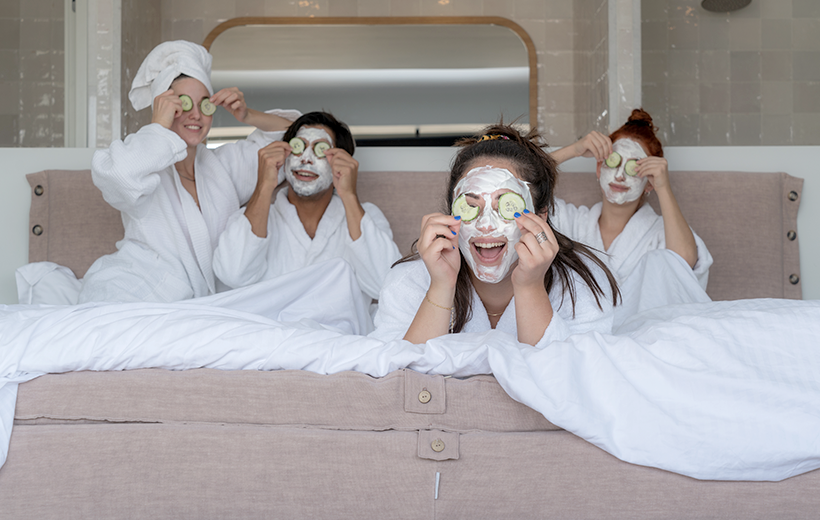We often read and hear that sleeping hours are absolutely necessary and important for our skin. But what really happens during these hours in the largest organ of our body, how is sleep related to the care of our skin and how can we help it to perform its important functions while we sleep?
The hours of sleep are those during which our skin rests, without receiving the harmful effects of solar radiation and environmental pollution. During these hours, the skin's repair mechanisms are activated, so that with the precious help of our immune system, they can repair the cellular damage that has been done during the day, due to the action of UV radiation and free radicals. It is, therefore, particularly important to observe the necessary hours of sleep for the skin, but also for overall health, which is estimated at 6-8 hours of nighttime sleep for adults and 8-10 hours for children, so that we provide our skin with sufficient time to be able to activate its repair mechanisms and renew itself in depth.
Besides, during the hours we sleep, the circulation of stress hormones in the body decreases, while at the same time, the levels of growth hormones increase, as a result of which the skin activates the mechanisms of new cell production and renews the collagen tissue, which is absolutely necessary for the support, firmness, smooth texture and healthy, youthful appearance of the skin.
In addition, many skin care products that have beneficial, anti-aging properties for our skin, such as retinol and vitamin C, can work much better at night, as the stability of their molecules and by extension their action is not affected by the sunlight, while at the same time, the lack of UV-radiation significantly reduces the possibility of skin irritations from their application.
However, it is worth noting that during sleep the temperature of our skin usually increases, and sebum production decreases. This, if not addressed with the use of appropriate skin care products, can lead to increased transdermal water loss, resulting in reduced skin cell moisture levels and often resulting in skin dehydration.
The correct preparation of the skin before sleep
In order to prepare our skin even better, so that it can reap all the benefits of a good night's sleep, it is important to have removed with a special cleansing product all the remains of sebum, atmospheric dust, and make-up.
The ideal products for evening skincare
In addition, the hours of night sleep, when sebum production from the skin decreases and transdermal water loss increases, is the right time to use deeply moisturizing and antiaging products, as well as specialized antioxidant firming and toning serums. We choose products that contain skin-nourishing peptides, antioxidant vitamin C, hyaluronic acid, and panthenol, which provide radiance and deep hydration, but also retinol, which has powerful anti-aging properties. These valuable ingredients can act stimulating and helpful in the repair mechanisms of skin damage that are put into operation during the night.
Skincare: Choosing the right linens plays an important role
In addition, in order to achieve all the valuable benefits of good sleep, we should not forget the importance of the quality of the linen with which our skin comes into contact throughout the night. Fabrics made from natural materials, such as pure organic cotton, allow our skin to breathe better and more easily carry out the cellular renewal functions associated with sleep, while their use also reduces the possibility of allergic contact dermatitis, which can be caused by the use of synthetic fabrics.
The importance of choosing the right white items for children's skin
This is especially important for our little friends, as children's skin is thinner, with a much more sensitive and fragile skin barrier, which makes children's skin more prone to irritation and allergic-type reactions. It is therefore very important to choose fabrics and linens made of natural organic cotton and avoid synthetic fibers so that children's skin remains protected and safe throughout the sleeping hours.
Night sleep, therefore, is our valuable ally for skin health, and for this reason, it should not be skipped, as it offers rest and rejuvenation to the structure and function of skin cells.
We should remember that while we sleep, we give our skin the opportunity to heal the damage of the daily battle with harmful environmental factors and to renew itself as a whole.
It is worth giving him this time, therefore, every night!
Dr. Corina Jima
